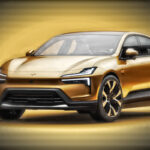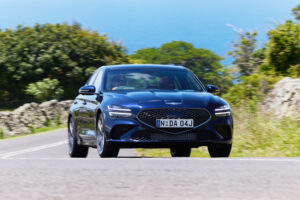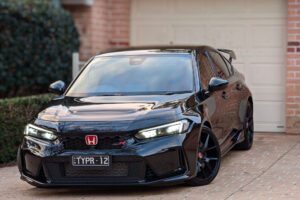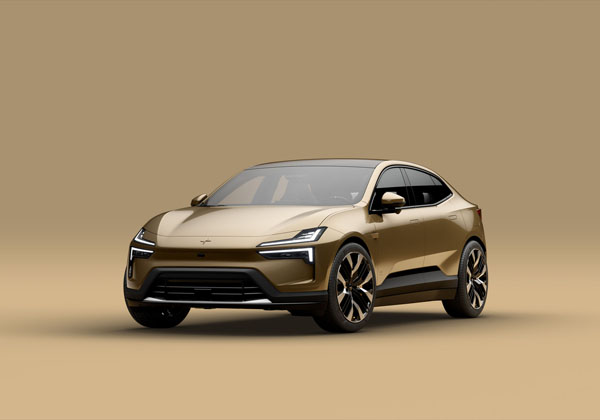
The first country to get the latest addition to the Polestar range will be China.
In fact, that’s where the Polestar 4 Coupe will be built, at Geely’s state-of-the-art
production facility at Hangzhou Bay, starting November 2023.
The coupe is positioned between Polestar 2 and 3 in terms of size and price and is
described as the brand’s fastest Polestar production car to date. The dash from 0-
100km/h takes 3.8 seconds.
“With Polestar 4 we have taken a fundamental new approach to SUV coupé design,”
Polestar CEO, Thomas Ingenlath, said.
“Rather than simply modifying an existing SUV, giving it a faster roofline and as a
result, compromising elements like rear headroom and comfort, we have designed
Polestar 4 from the ground up as a new breed of SUV coupé that celebrates rear
occupant comfort and experience.”
In a break with design Polestar 4 has no rear window, with a roof-mounted camera
providing a view of the rear instead.
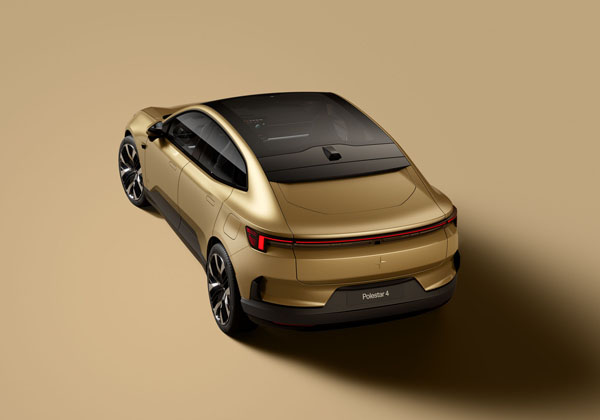
Removal of the window is designed to provide a new kind of immersive rear occupant
experience.
Aerodynamic efficiency is enhanced by a low nose, retractable door handles, flush
glazing with frameless windows, rear aero blades and air flow optimisation around the
rear light bar.
Built on Geely’s Sustainable Experience Architecture (SEA), Polestar 4 is a D-segment
SUV coupe, 4839mm long with a 2999mm wheelbase.
Generous interior proportions are especially evident in the rear, where occupants are
cocooned in an intimate environment, with reclining seats.
Adjustable ambient lighting inspired by the solar system allows the driver to customise
the driving environment.
A standard full-length glass roof is available with optional electrochromic functionality,
allowing for opaque or transparent execution depending on mood.
Thanks to the elimination of the rear window, the glass roof stretches beyond the heads
of rear occupants, creating a truly unique interior ambience.
A secondary media and climate control screen is mounted between the front seats to
enable rear occupant control.
Both dual- and single motor versions will be available, with single-motor versions
featuring rear-wheel drive.
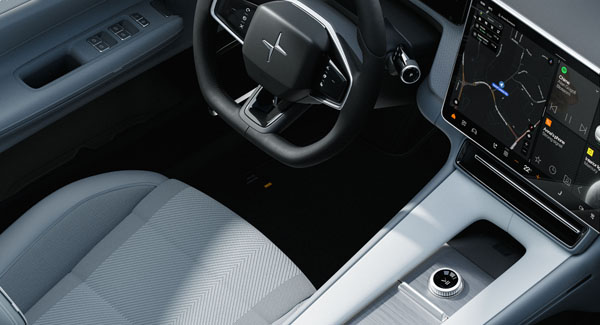
Motors are of a permanent magnet, synchronous design, with a 102kWh battery fitted
to both long-range versions.
The Long-range Dual motor features 400kW and 686Nm of torque, with a preliminary
range of up to 560km (WLTP).
The Long-range Single motor version features a 200kW and 343Nm motor at the rear
and preliminary range target of up to 600km (WLTP).
A disconnect clutch allows the car to disengage the front electric motor when not
needed, to maximise range and efficiency.
Semi-active suspension features in the dual-motor version for an additional layer of
adjustment between comfort and performance dynamics.
Wheels range from 20 to 22-inches in size, depending on the version, with tyres
supplied by Pirelli and Michelin.
Bi-directional charging is included, with vehicle-to-load (V2L) capability providing for
external devices to draw power.
A heat pump is fitted as standard, allowing the car to capitalise on ambient heat when
preconditioning the cabin and battery.
A new drive optimisation function allows the driver to select between range or
performance driving modes in the long-range Dual motor version.
Performance mode sharpens up responsiveness from the powertrain and engages both
motors at all times for full power delivery and best performance.
Range mode prioritises efficiency, adapting the powertrain to a calmer style and forces
use of only the rear motor.
The infotainment system powered by Android Automotive OS and the Snapdragon
Cockpit Platform now uses a 15.4-inch landscape-oriented screen.
A Harman Kardon audio system is available as an option with 12 speakers and 1400-
Watt channel-hybrid amplifier. An additional two headrest speakers are added to each
front seat with the optional Nappa Pack, increasing the total to 16.




